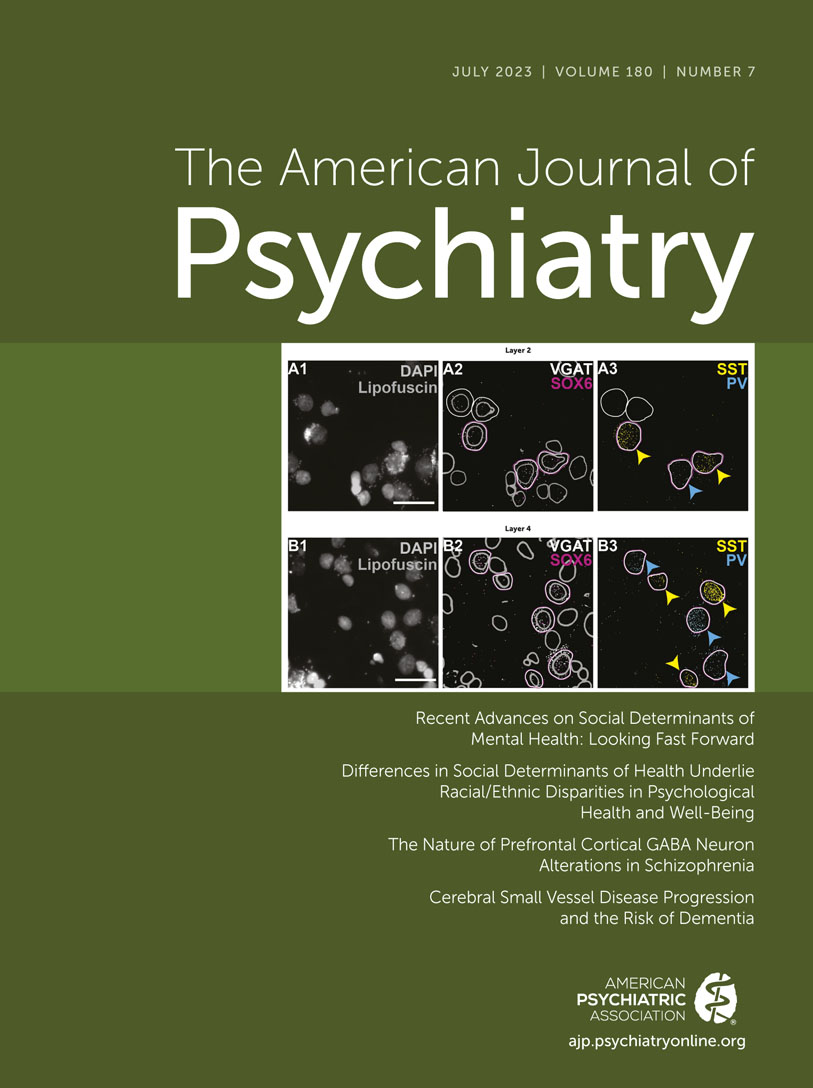Differences in Social Determinants of Health Underlie Racial/Ethnic Disparities in Psychological Health and Well-Being: Study of 11,143 Older Adults
Abstract
Objective:
The authors sought to determine the impact of selected social determinants of health (SDoH) on psychological health and well-being (defined as depression, cognition, and self-rated health) among Black and Hispanic/Latinx adults relative to White adults 51–89 years of age.
Methods:
Disparities in depressive symptomatology, cognition, and self-rated health were measured among 2,306 non–Hispanic/Latinx Black, 1,593 Hispanic/Latinx, and 7,244 non–Hispanic/Latinx White adults who participated in the Health and Retirement Study (N=11,143). Blinder-Oaxaca decomposition was used to examine whether differences in selected SDoH explained a larger share of the disparities than age, sex, measures of health, health behaviors, and health care utilization. Selected SDoH included education, parental education, number of years worked, marital status, veteran status, geographic residence, nativity status, income, and insurance coverage.
Results:
Black and Hispanic/Latinx adults reported worse depressive symptomatology, cognition, and self-rated health than White adults. Selected SDoH were associated with a larger proportion of the Black–White disparities in depressive symptomatology (51%), cognition (39%), and self-rated health (37%) than were age, sex, measures of health, health behaviors, and health care utilization. SDoH were associated with a larger proportion of the Hispanic/Latinx–White disparity in cognition (76%) and self-rated health (75%), but age and physical health correlated with the disparity in depressive symptomatology (28%). Education, parental education, years worked, income, and insurance parity were SDoH associated with these disparities.
Conclusions:
Differences in SDoH underlie racial/ethnic disparities in depression, cognition, and self-rated health among older adults. Education, income, number of years worked, and insurance parity are key SDoH.
Access content
To read the fulltext, please use one of the options below to sign in or purchase access.- Personal login
- Institutional Login
- Sign in via OpenAthens
- Register for access
-
Please login/register if you wish to pair your device and check access availability.
Not a subscriber?
PsychiatryOnline subscription options offer access to the DSM-5 library, books, journals, CME, and patient resources. This all-in-one virtual library provides psychiatrists and mental health professionals with key resources for diagnosis, treatment, research, and professional development.
Need more help? PsychiatryOnline Customer Service may be reached by emailing [email protected] or by calling 800-368-5777 (in the U.S.) or 703-907-7322 (outside the U.S.).



